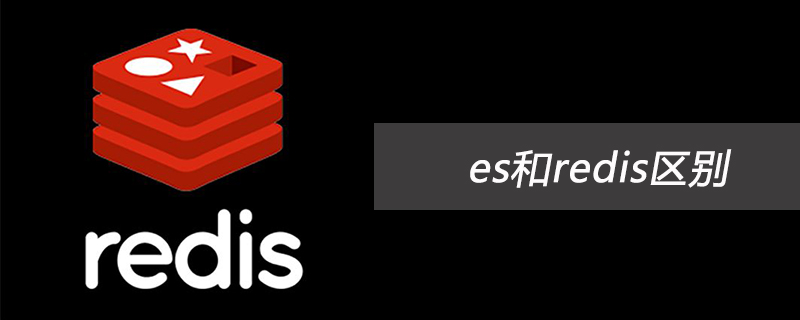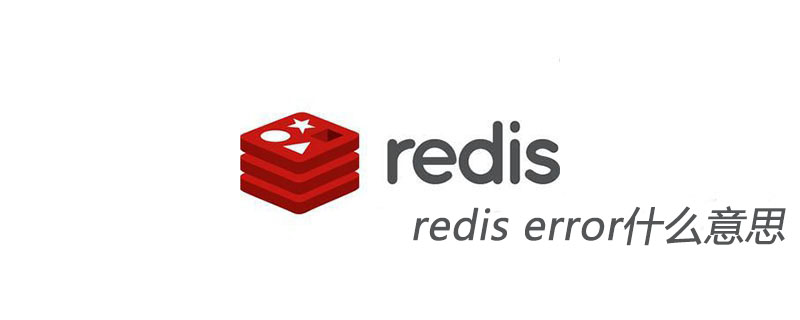概述 在 redis 中,允许用户设置最大使用内存大小 server.maxmemory,在内存限定的情况下是很有用的。譬如,在一台 8G 机子上部署了 4 个 redis 服务点,每一个服务点分配 1.5G 的内存大小,减少内存紧张的情况,由此获取更为稳健的服务。 redis 内存数据集
概述
在 redis 中,允许用户设置最大使用内存大小 server.maxmemory,在内存限定的情况下是很有用的。譬如,在一台 8G 机子上部署了 4 个 redis 服务点,每一个服务点分配 1.5G 的内存大小,减少内存紧张的情况,由此获取更为稳健的服务。
redis 内存数据集大小上升到一定大小的时候,就会施行数据淘汰策略。redis 提供 6种数据淘汰策略:
- volatile-lru:从已设置过期时间的数据集(server.db[i].expires)中挑选最近最少使用的数据淘汰
- volatile-ttl:从已设置过期时间的数据集(server.db[i].expires)中挑选将要过期的数据淘汰
- volatile-random:从已设置过期时间的数据集(server.db[i].expires)中任意选择数据淘汰
- allkeys-lru:从数据集(server.db[i].dict)中挑选最近最少使用的数据淘汰
- allkeys-random:从数据集(server.db[i].dict)中任意选择数据淘汰
- no-enviction(驱逐):禁止驱逐数据
redis 确定驱逐某个键值对后,会删除这个数据并,并将这个数据变更消息发布到本地(AOF 持久化)和从机(主从连接)。
LRU 数据淘汰机制
在服务器配置中保存了 lru 计数器 server.lrulock,会定时(redis 定时程序 serverCorn())更新,server.lrulock 的值是根据 server.unixtime 计算出来的。
另外,从 struct redisObject 中可以发现,每一个 redis 对象都会设置相应的 lru。可以想象的是,每一次访问数据的时候,会更新 redisObject.lru。
LRU 数据淘汰机制是这样的:在数据集中随机挑选几个键值对,取出其中 lru 最大的键值对淘汰。所以,你会发现,redis 并不是保证取得所有数据集中最近最少使用(LRU)的键值对,而只是随机挑选的几个键值对中的。
// redisServer 保存了 lru 计数器
struct redisServer {
...
unsigned lruclock:22; /* Clock incrementing every minute, for LRU */
...
};
// 每一个 redis 对象都保存了 lru
#define REDIS_LRU_CLOCK_MAX ((1<lru redis_lru_clock_resolution lru clock resolution in seconds typedef struct redisobject bits unsigned type:4 notused:2 not used encoding:4 lru:22 time to server.lruclock int refcount void robj redis cron servercron aeeventloop long id ...... we have just per object for information. so use an wrapping with resolution. is more or less years. note that even if this will wrap after years it a problem everything still work but some appear younger redis. happen given should never be touched you can change the altering define. updatelruclock redis_lru_clock_max>
<h3 id="TTL-数据淘汰机制">TTL 数据淘汰机制</h3>
<p>redis 数据集数据结构中保存了键值对过期时间的表,即 redisDb.expires。和 LRU 数据淘汰机制类似,TTL 数据淘汰机制是这样的:从过期时间的表中随机挑选几个键值对,取出其中 ttl 最大的键值对淘汰。同样你会发现,<strong>redis 并不是保证取得所有过期时间的表中最快过期的键值对,而只是随机挑选的几个键值对中的。</strong></p>
<h3 id="总结">总结</h3>
<p>redis 每服务客户端执行一个命令的时候,会检测使用的内存是否超额。如果超额,即进行数据淘汰。</p>
<pre class="brush:php;toolbar:false">// 执行命令
int processCommand(redisClient *c) {
......
// 内存超额
/* Handle the maxmemory directive.
*
* First we try to free some memory if possible (if there are volatile
* keys in the dataset). If there are not the only thing we can do
* is returning an error. */
if (server.maxmemory) {
int retval = freeMemoryIfNeeded();
if ((c->cmd->flags & REDIS_CMD_DENYOOM) && retval == REDIS_ERR) {
flagTransaction(c);
addReply(c, shared.oomerr);
return REDIS_OK;
}
}
......
}
// 如果需要,是否一些内存
int freeMemoryIfNeeded(void) {
size_t mem_used, mem_tofree, mem_freed;
int slaves = listLength(server.slaves);
// redis 从机回复空间和 AOF 内存大小不计算入 redis 内存大小
/* Remove the size of slaves output buffers and AOF buffer from the
* count of used memory. */
mem_used = zmalloc_used_memory();
// 从机回复空间大小
if (slaves) {
listIter li;
listNode *ln;
listRewind(server.slaves,&li);
while((ln = listNext(&li))) {
redisClient *slave = listNodeValue(ln);
unsigned long obuf_bytes = getClientOutputBufferMemoryUsage(slave);
if (obuf_bytes > mem_used)
mem_used = 0;
else
mem_used -= obuf_bytes;
}
}
// server.aof_buf && server.aof_rewrite_buf_blocks
if (server.aof_state != REDIS_AOF_OFF) {
mem_used -= sdslen(server.aof_buf);
mem_used -= aofRewriteBufferSize();
}
// 内存是否超过设置大小
/* Check if we are over the memory limit. */
if (mem_used expires. */
if (server.maxmemory_policy == REDIS_MAXMEMORY_VOLATILE_LRU)
de = dictFind(db->dict, thiskey);
o = dictGetVal(de);
// 计算数据的空闲时间
thisval = estimateObjectIdleTime(o);
// 当前键值空闲时间更长,则记录
/* Higher idle time is better candidate for deletion */
if (bestkey == NULL || thisval > bestval) {
bestkey = thiskey;
bestval = thisval;
}
}
}
// TTL 策略:挑选将要过期的数据
/* volatile-ttl */
else if (server.maxmemory_policy == REDIS_MAXMEMORY_VOLATILE_TTL) {
// server.maxmemory_samples 为随机挑选键值对次数
// 随机挑选 server.maxmemory_samples个键值对,驱逐最快要过期的数据
for (k = 0; k id);
decrRefCount(keyobj);
keys_freed++;
// 将从机回复空间中的数据及时发送给从机
/* When the memory to free starts to be big enough, we may
* start spending so much time here that is impossible to
* deliver data to the slaves fast enough, so we force the
* transmission here inside the loop. */
if (slaves) flushSlavesOutputBuffers();
}
}
// 未能释放空间,且此时 redis 使用的内存大小依旧超额,失败返回
if (!keys_freed) return REDIS_ERR; /* nothing to free... */
}
return REDIS_OK;
}
捣乱 2014-5-27
http://daoluan.net
原文地址:深入剖析 redis 数据淘汰策略, 感谢原作者分享。
 es和redis区别Jul 06, 2019 pm 01:45 PM
es和redis区别Jul 06, 2019 pm 01:45 PMRedis是现在最热门的key-value数据库,Redis的最大特点是key-value存储所带来的简单和高性能;相较于MongoDB和Redis,晚一年发布的ES可能知名度要低一些,ES的特点是搜索,ES是围绕搜索设计的。
 一起来聊聊Redis有什么优势和特点May 16, 2022 pm 06:04 PM
一起来聊聊Redis有什么优势和特点May 16, 2022 pm 06:04 PM本篇文章给大家带来了关于redis的相关知识,其中主要介绍了关于redis的一些优势和特点,Redis 是一个开源的使用ANSI C语言编写、遵守 BSD 协议、支持网络、可基于内存、分布式存储数据库,下面一起来看一下,希望对大家有帮助。
 实例详解Redis Cluster集群收缩主从节点Apr 21, 2022 pm 06:23 PM
实例详解Redis Cluster集群收缩主从节点Apr 21, 2022 pm 06:23 PM本篇文章给大家带来了关于redis的相关知识,其中主要介绍了Redis Cluster集群收缩主从节点的相关问题,包括了Cluster集群收缩概念、将6390主节点从集群中收缩、验证数据迁移过程是否导致数据异常等,希望对大家有帮助。
 详细解析Redis中命令的原子性Jun 01, 2022 am 11:58 AM
详细解析Redis中命令的原子性Jun 01, 2022 am 11:58 AM本篇文章给大家带来了关于redis的相关知识,其中主要介绍了关于原子操作中命令原子性的相关问题,包括了处理并发的方案、编程模型、多IO线程以及单命令的相关内容,下面一起看一下,希望对大家有帮助。
 一文搞懂redis的bitmapApr 27, 2022 pm 07:48 PM
一文搞懂redis的bitmapApr 27, 2022 pm 07:48 PM本篇文章给大家带来了关于redis的相关知识,其中主要介绍了bitmap问题,Redis 为我们提供了位图这一数据结构,位图数据结构其实并不是一个全新的玩意,我们可以简单的认为就是个数组,只是里面的内容只能为0或1而已,希望对大家有帮助。
 一起聊聊Redis实现秒杀的问题May 27, 2022 am 11:40 AM
一起聊聊Redis实现秒杀的问题May 27, 2022 am 11:40 AM本篇文章给大家带来了关于redis的相关知识,其中主要介绍了关于实现秒杀的相关内容,包括了秒杀逻辑、存在的链接超时、超卖和库存遗留的问题,下面一起来看一下,希望对大家有帮助。
 redis error什么意思Jun 17, 2019 am 11:07 AM
redis error什么意思Jun 17, 2019 am 11:07 AMredis error就是redis数据库和其组合使用的部件出现错误,这个出现的错误有很多种,例如Redis被配置为保存数据库快照,但它不能持久化到硬盘,用来修改集合数据的命令不能用。
 一起聊聊Redis变慢的原因及排查方法Jun 10, 2022 pm 06:14 PM
一起聊聊Redis变慢的原因及排查方法Jun 10, 2022 pm 06:14 PM本篇文章给大家带来了关于redis的相关知识,其中主要介绍了关于Redis变慢的原因及排查方法的相关问题,下面一起来看一下,希望对大家有帮助。


Hot AI Tools

Undresser.AI Undress
AI-powered app for creating realistic nude photos

AI Clothes Remover
Online AI tool for removing clothes from photos.

Undress AI Tool
Undress images for free

Clothoff.io
AI clothes remover

AI Hentai Generator
Generate AI Hentai for free.

Hot Article

Hot Tools

SublimeText3 Mac version
God-level code editing software (SublimeText3)

MantisBT
Mantis is an easy-to-deploy web-based defect tracking tool designed to aid in product defect tracking. It requires PHP, MySQL and a web server. Check out our demo and hosting services.

MinGW - Minimalist GNU for Windows
This project is in the process of being migrated to osdn.net/projects/mingw, you can continue to follow us there. MinGW: A native Windows port of the GNU Compiler Collection (GCC), freely distributable import libraries and header files for building native Windows applications; includes extensions to the MSVC runtime to support C99 functionality. All MinGW software can run on 64-bit Windows platforms.

WebStorm Mac version
Useful JavaScript development tools

Safe Exam Browser
Safe Exam Browser is a secure browser environment for taking online exams securely. This software turns any computer into a secure workstation. It controls access to any utility and prevents students from using unauthorized resources.







